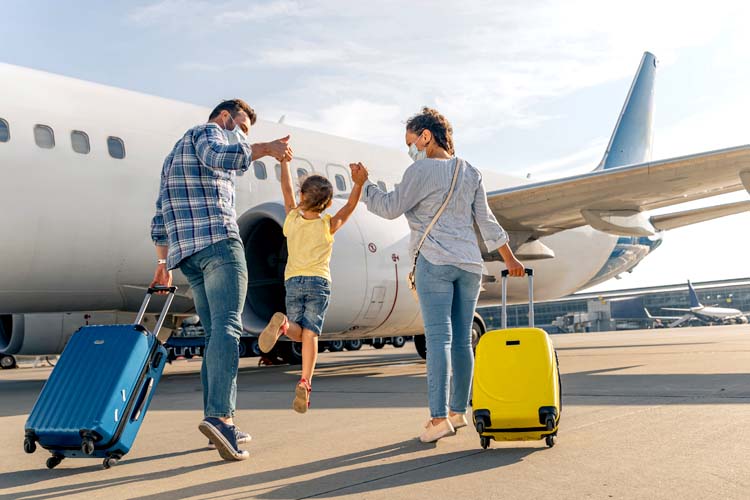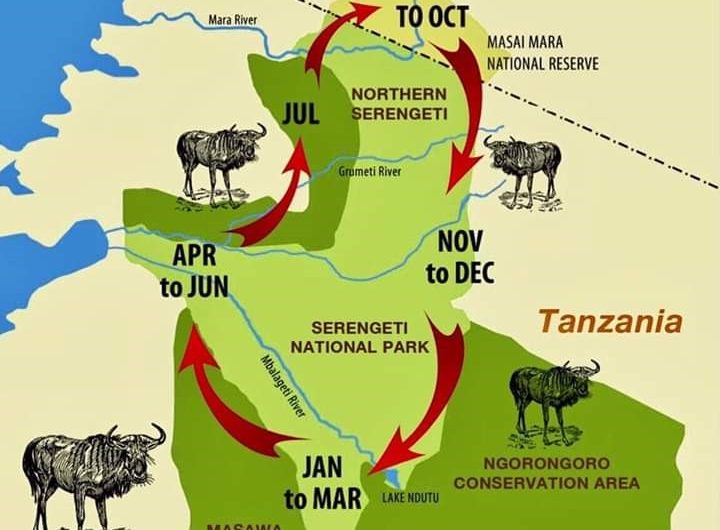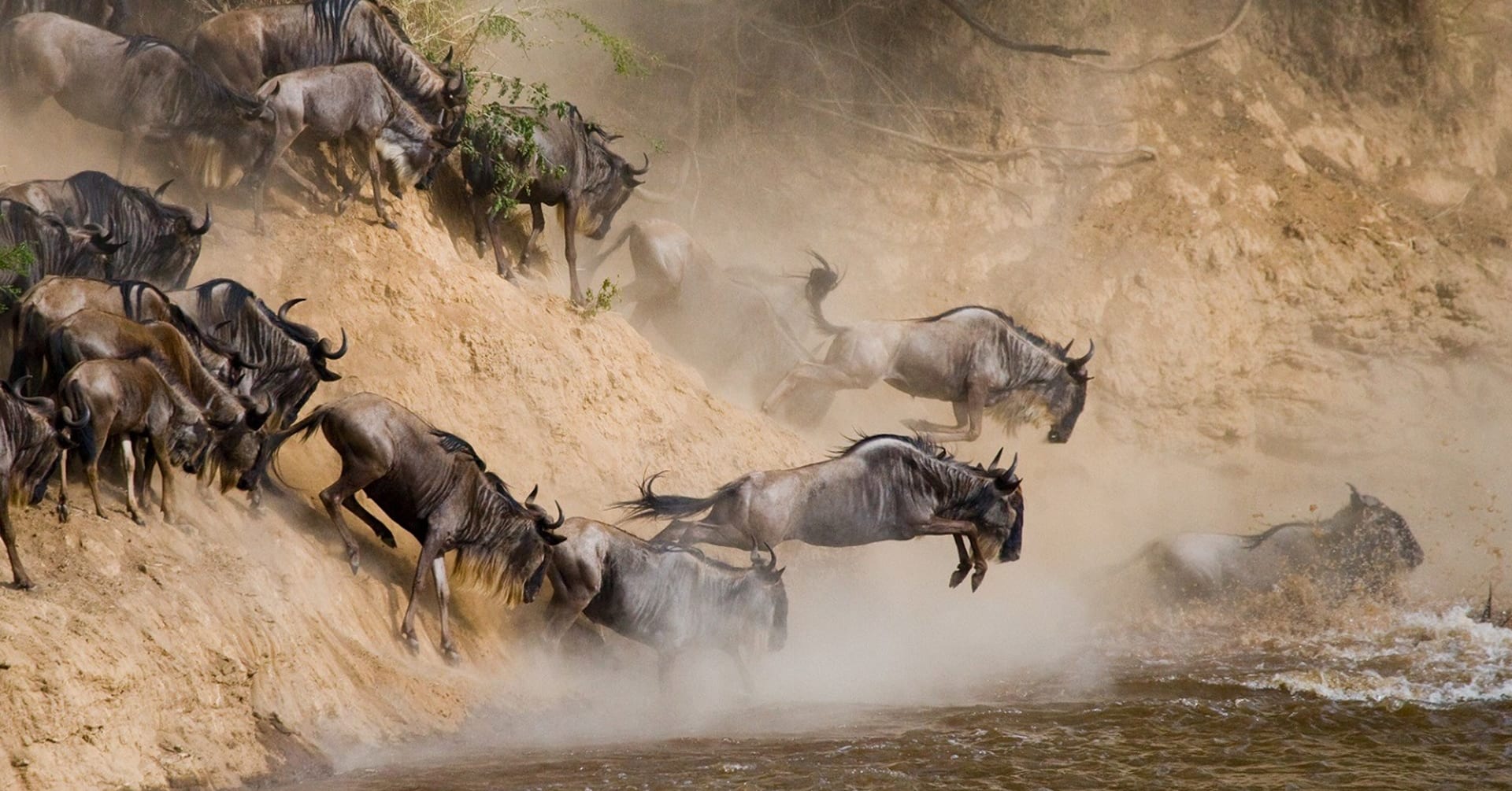Is Tanzania a safe country to visit?
Tanzania is the largest East African nation and is considered the most peaceful country in the region. However, you may have concerns about traveling to Tanzania, especially because of the recent worldwide health concerns. Some websites also say that traveling to Tanzania might be dangerous due to the threat of violence and terrorism. You may be asking; are these concerns valid? What is it really like in Tanzania? Is Tanzania a safe country to visit?
Currently, there has been an increase in worries around traveling anywhere because of the COVID-19 pandemic. However, before, during and even after COVID-19 all travellers travel at their own risk. We encourage travellers to exercise reasonable caution and common sense, but to not be afraid to experience a new destination and embrace the wonders of Tanzania.
Why should I trust you?
It is a good question to ask why you may rely on our travel advice. The answer is simple: we have been living in the Kilimanjaro region since 2010, and we know everything and everyone around here. It is one of the reasons why the leading travel agencies consistently choose Ways African Safaris to lead their expeditions.
Alleged dangers of visiting Tanzania
Several travel advisories cite “crime, terrorism and targeting persons” as reasons to avoid travel to Tanzania. With the exception of certain isolated cases, we can certainly say that it is an exaggeration, and does not accurately reflect the main tourist hubs in Tanzania.
Crime
Like all vacation destinations, there is petty crime in Tanzania. However, we wouldn’t say it is more common than, for example, the Dominican Republic, Thailand, Egypt, or Kenya. But, we would say it is probably less common than in places such as Paris, France, Venice, Italy or Barcelona, Spain, which have earned a reputation for expert pick-pockets or passport thieves around the most well-known tourist attractions.
Exercising reasonable travel caution is recommended. We encourage all travellers to pay attention to the following:
Pickpockets often work in crowded places such as markets and public transportation hubs. While visiting such places, it is highly recommended to leave cash and other valuables at the hotel. If you need a bit of cash for such excursions, keep your money in a small, hidden pouch, your front pocket, or in a purse that is held at the front of your body. Avoid putting your wallet in your back pocket, or keeping your purse at your side, or back of your body.
We encourage visitors to exercise caution when visiting beaches, especially in Dar es Salaam; do not leave your items unattended on the beach, and avoid contact with local “beach boys”, who are mostly overly-friendly young men trying to start up conversations or selling cheap souvenirs (as a scam to see where you keep your wallet).
Tanzania’s largest city, Dar es Salaam (among other large cities), sometimes has occurrences of robberies. Nearly all instances are of the “snatch and run” technique – an attacker simply grabs a bag and tries to get lost among the busy city crowd.
Thus, do not carry your valuables in a bag; better lock them in a hotel safe. And of course, do not leave your luggage unattended. At night, we recommend travellers take a hotel taxi instead of walking, or only using official white-and-green taxis, never private cars.
All of Visit Arusha guests are accompanied by a driver or guide who is familiar with the areas, and helps to prevent and protect against all types of misadventures. If a guest specifically requests to visit an area or tour a city without a guide or driver, it can be allowed, but at the individual’s own risk.
Violent crime
In spite of lots of misleading articles available on the Internet (some of them, sadly, published by reputable sources), violent crime against tourists is something extraordinarily rare in the northern part of Tanzania, including the popular tourist cities of Arusha and Moshi.
In nearly a decade of our time operating in Tanzania, we have heard of only a few isolated incidents of armed robberies – all of which have occurred in coastal areas of Eastern Tanzania, and not in Northern Tanzania.
Another one-off offense we have heard of is individuals being accosted as they withdrew money from an ATM at night in Dar es Salaam. To our knowledge, these people were not injured, although they did have money stolen from them. We do not recommend going to ATMs after dark, and suggest visitors attend ATMs which are guarded by a security guard (which is common for nearly all banks and ATMs in Arusha and Moshi).
It is also important to mention that the overwhelming majority of Tanzanians are people of kindness and peace who welcome foreigners with respect and care. Violence, as a means of addressing conflict, is largely unheard of in the general Tanzanian population. Further, the tourism industry plays a major role in the economy of Northern Tanzania, especially in the towns of Arusha and Moshi. Therefore, many individuals appreciate and welcome travellers and want to reinforce a positive image of the nation, even so far as to go out of their way to accommodate a lost traveller or foreigner having a difficult time communicating.
All things considered, the chance of a traveller being the victim of a robbery or mugging in Tanzania is not any more than in popular travel locations in the United States or Europe. To prevent such incidents, it is advised to exercise common sense, avoid unsavoury areas, take taxis at night instead of walking, attend banks and ATMs during daylight hours, don’t carry large amounts of cash, and keep your personal items with you at all times.
Perhaps this is a poor misrepresentation of Tanzania’s conservative society.
Generally, intimacy and love is a very private thing in Tanzanian culture, and public displays of affection are not common with Tanzanian couples. Openly displaying affection is frowned upon throughout Tanzania – for both heterosexual and diverse relationships – and isn’t intended to be discriminatory, only that it is out-of-place in this conservative society.
With this understanding, we can confidently say that in the time we have resided in Tanzania, we have not ever once seen a single case of a tourist being ill-treated based on their sexual orientation.
We can assure you that as long as common decency norms are followed, no one will be troubled because of the partner someone prefers to be with.
So, is Tanzania a safe country to visit?
Yes, it is. Ask visit Arusha who have experienced for Kilimanjaro and safari parks and all other wonderful places throughout Tanzania in recent months.
If you have any further questions or concerns, please do not hesitate to ask our dedicated Travel Consultants.
We are passionate about Tanzania, and believe that this is not only a safe nation to visit – but one of the most beautiful, natural and interesting destinations in the world! Don’t allow inaccurate information persuade you from the adventure of a lifetime in East Africa. https://waysafricansafaris.com/tanzania-safari-tours/



